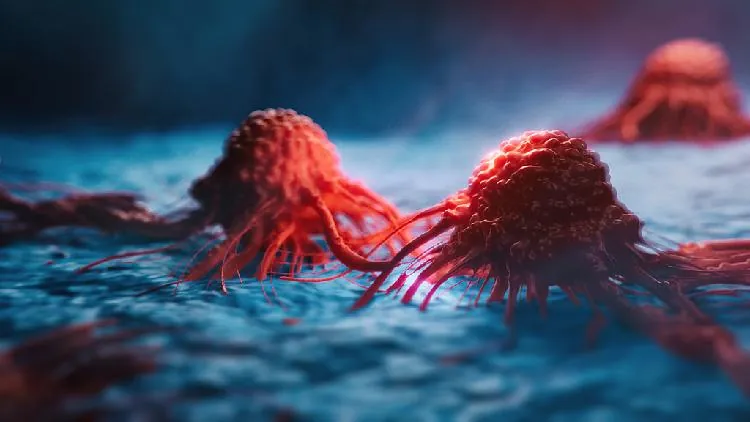
Groundbreaking Study Unveils Tumor's Devious Strategy to Outsmart Immune Defenses
2025-04-08
Author: Yu
Introduction
In a stunning revelation, Chinese scientists have uncovered a crucial metabolic alliance between breast cancer cells and immune cells that not only fuels aggressive tumor behavior but also significantly contributes to resistance against immunotherapies.
The Role of Arginine
This landmark study highlights how tumors cunningly manipulate the amino acid arginine to grow unchecked while evading the immune system's defenses.
Research Team and Publication
Led by Professor Hu Hai, a prominent figure at the Hangzhou Institute of Medicine (HIM) and chief physician at Zhejiang Cancer Hospital, along with experts from Sun Yat-Sen University and HIM, the findings were published in the prestigious journal Cancer Cell on April 3.
Key Discoveries
The research team made a groundbreaking discovery: breast cancer cells serve as 'arginine factories,' flooding their environment with this vital nutrient.
Impact on Immune Cells
While arginine is crucial for maintaining a healthy immune response, cancer cells cleverly weaponize it to alter the behavior of tumor-associated macrophages (TAMs), a type of immune cell.
Mechanism of Action
This reprogramming transforms TAMs into agents that suppress the activity of CD8+ T cells, the body’s primary defenders against cancer, ultimately promoting tumor growth and progression.
Research Techniques
Through advanced single-cell and metabolic analysis techniques, the researchers mapped the intricate ways in which arginine derived from cancer cells modifies the tumor microenvironment.
TAMs and Polyamines
They observed that TAMs absorb arginine and convert it into polyamines—molecules that alter the macrophages' genetic programming, locking them in a pro-tumor state.
Reviving CD8+ T Cells
But hope may be on the horizon. The study's promising results pave the way for innovative treatments.
Future Therapeutic Approaches
By interrupting the metabolic pathways associated with arginine, researchers were able to revive CD8+ T cell activity and impede tumor growth in preclinical models.
Broader Implications
While this particular investigation focuses on breast cancer, the researchers speculate that similar metabolic strategies may be utilized by various types of tumors to evade immune surveillance.
Conclusion
This groundbreaking discovery represents a pivotal advancement in the quest for precision therapies that aim to simultaneously starve tumors of their essential nutrients while invigorating the immune system.
Looking Ahead
Stay tuned as this evolving field of cancer research continues to reveal intricate strategies behind tumor growth and the immune response, offering new hope to patients worldwide!


 Brasil (PT)
Brasil (PT)
 Canada (EN)
Canada (EN)
 Chile (ES)
Chile (ES)
 Česko (CS)
Česko (CS)
 대한민국 (KO)
대한민국 (KO)
 España (ES)
España (ES)
 France (FR)
France (FR)
 Hong Kong (EN)
Hong Kong (EN)
 Italia (IT)
Italia (IT)
 日本 (JA)
日本 (JA)
 Magyarország (HU)
Magyarország (HU)
 Norge (NO)
Norge (NO)
 Polska (PL)
Polska (PL)
 Schweiz (DE)
Schweiz (DE)
 Singapore (EN)
Singapore (EN)
 Sverige (SV)
Sverige (SV)
 Suomi (FI)
Suomi (FI)
 Türkiye (TR)
Türkiye (TR)
 الإمارات العربية المتحدة (AR)
الإمارات العربية المتحدة (AR)